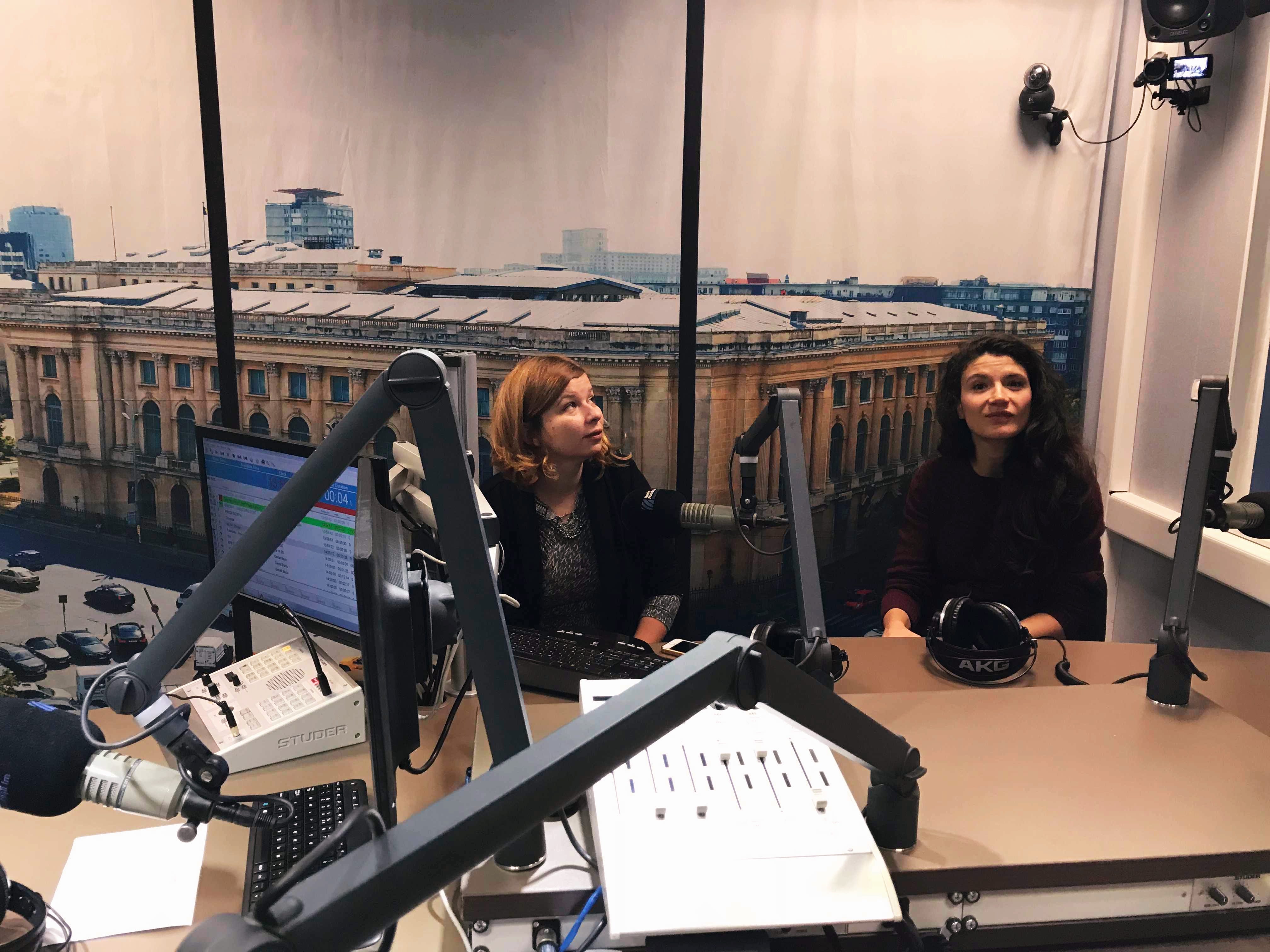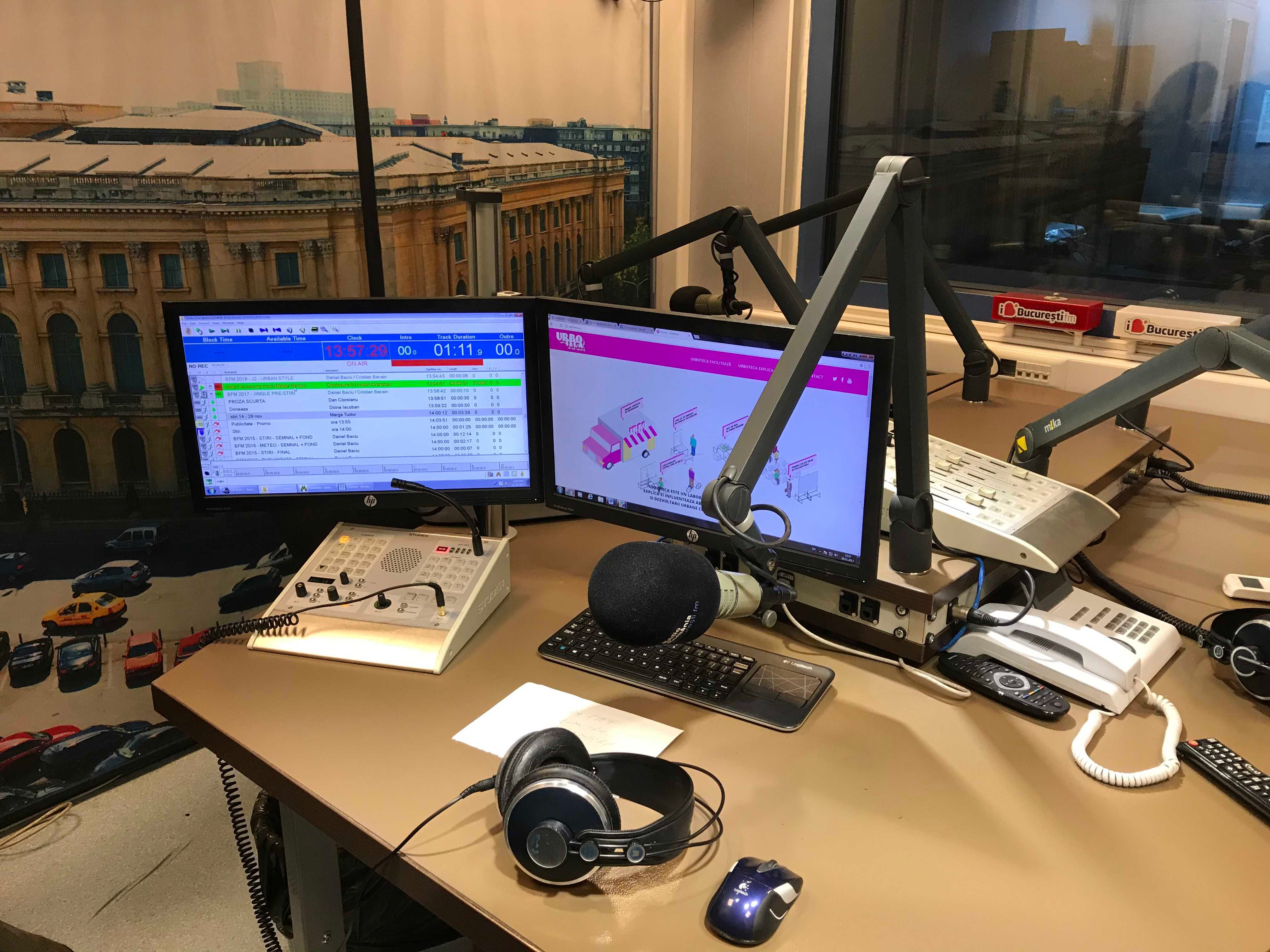An applied research programme engaging neighbourhood communities in Bucharest.
We ended 2017 on a high note. Mid-December, we welcomed the first generation to the Urboteca Fellowship Programme, a 14-week live-learning experience designed for graduate students and young professionals to explore how they can support neighbourhood communities to better act upon their urban environments, while embedding mutual learning in the process.
Our multidisciplinary team of 6 has doubled its research might and discipline mix by bringing onboard 6 fellows with backgrounds in architecture, urban design, geography, art history, filmmaking, journalism, community development, anthropology and computer programming.
Together we will prototype a practical learning programme based on field research, study visits to community development organisations and collaboration with a group of citizens working to make their neighbourhood a better place to live.
The campaign
We wanted to reach potential candidates from a wide range of disciplines and professions, so we started by asking our networks of colleagues, collaborators, teaching staff and former students to share the call for fellows through mailing lists, online groups and direct recommendations. Then we did quite a bit of online scouting ourselves. Urboteca’s Facebook page and website were the campaign’s main channels, although we also had fun presenting the fellowship at a local radio station, BucureștiFM. Our partners also supported the campaign by promoting the call among their civically-minded followers.



This snowballing approach seems to have worked. The level of interest in the programme and the diversity of candidates’ profiles surpassed our expectations, giving us a hard time to keep the cap at 6 fellows. With 54 applicants and over 20 interviewees after a first round of evaluations, we met more inquisitive and eager students and junior professionals than we could bring onboard.
When asked what convinced them to apply, most of the candidates mentioned versions of the same three elements: fieldwork (applied research in a real-life setting), interdisciplinary (learning across fields), community (it serves an immediate purpose, helping where it’s needed).
The design
To a project born with the goal of making participatory urbanism in Romania graspable and popular, hearing that those elements are valuable to a new generation of professionals was music to Urboteca’s ears. It felt like a bridge was emerging between our urban pedagogy work, begun in 2014, and today’s.
As partners in Urban Education Live — the applied research project creating a new model of collaboration between universities and urban communities — we now have a fantastic opportunity to develop field-tested know-how for an often overlooked stakeholder in the challenge of having urban development become truly participatory: the young professional. The active citizen is the other crucial half in our fellowship formula.
Our goal in 2018 is to prototype and test a programme that will help students and aspiring specialists collaborate with the ultimate beneficiaries of urban development by engaging them and their user expertise in their own contexts and environments.



In terms of content, we have several theoretical, practical and methodological anchors. We will cover field research methods and data generation, analysis and representation, design thinking for neighbourhood-scale challenges, project management in multidisciplinary teams, participatory event design and creative communication and advocacy — all in a dynamic, real life context with real stakes and impact.
Flexibility is also being designed into the programme. We gather frequent feedback which we’ll incorporate throughout this pilot and iterate in following editions. Replicability is a principle we stick to, but there will also be a degree of customisation to accomodate the diversity of fellows’ backgrounds.
The partners
However exciting and new it may be to us in Bucharest, live projects of this kind are not a recent invention. Our programme owes much inspiration to pioneers like Sheffield School of Architecture’s Live Projects, with a solid and awarded 20-year experience. Luckily for us, SSoA is an UEL partner and a generous resource. Valuable references have also come from partners Tampere School of Architecture and University of Ljubljana’s Center for Spatial Sociology and the Institute for Spatial Policies.
We have also partnered up with nine local practitioners with a strong track record of working with urban communities or the public (space). Besides connecting students and young professionals with civic initiative groups that could benefit from their expertise and facilitating the mutual learning latent in these interactions, we want to familiarise fellows with a wider spectrum of career paths.

They are a mix of civil society organisations — a community foundation and a civic advocacy NGO, businesses — an ethical advertising agency and an urban planning consultancy, associations promoting cultural heritage protection, visual research and transparency in public governance, and a couple of international networks supporting (young) social entrepreneurship. We think of them as live labs where fellows can take a peek into their work and ask substantial questions to better understand their practices, while also building connections for potential future collaborations.
Our goal is for the Urboteca Fellowship Programme to create a genuinely collaborative setting where fellows, facilitators, practitioners and citizens emerge with co-produced knowledge on how to make our cities better together.
If you are left wondering who the fellows are, what civic initiative group we’ll collaborate with and how the programme’s first sessions are going, stay tuned. More updates to come.
Follow us on Twitter (in English) and Facebook (in Romanian).
